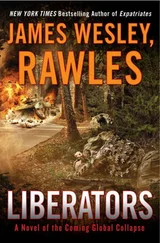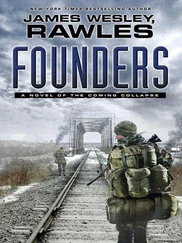Ray was definitely the oddball of the McGregor family. He was a Canadian Army Afghanistan war veteran who had gone on to study military history at Western University in London, Ontario. In his senior year, however, he had dropped out to work on a book about World War II veterans in Michigan.
Often living in a fifth-wheel “toy hauler” camping trailer towed behind his pickup truck, Ray had first lived in Ypsilanti, Michigan, and later relocated near Newberry, in Michigan’s Upper Peninsula. Most recently, he kept his trailer parked on a sprawling farm that belonged to the Harrison family. Four generations of the Harrisons had lived on the farm. Ray had met the Harrisons when he began a series of taped interviews with Bob Harrison, who was a B-24 bomber pilot in World War II.
With the exception of a few of his articles that were published in Military History magazine, Ray was a failure as a writer. He had never found a literary agent who was willing to work with him, and his four uncompleted manuscripts had never been published. He made most of his meager living cutting firewood.
The last e-mail Rhiannon received from Ray before Internet service was disrupted read:
Dear Rhi:
Things are getting bad here, even in the Upper Peninsula of Michigan. I parlayed the last of my cash into food and fuel. The inflation is so crazy that to wait just one day would mean I’d only get half as many groceries for my money.
I talked with Mom and Dad via Skype. I’m not sure how it is in the P.I., but here in the U.S. the phone lines are getting flaky AND are jammed with calls. Dad said they are doing okay, but they sound befuddled by the economic situation. Dad asked me for advice on finding a stock that would be safe to invest in. Ha! I suggested putting all of their remaining cash in food, fuel, salt blocks, bailing twine, and ammo.
My old friend Phil Adams told me that I need to “Get Out of Dodge” ASAP. The plan is for Phil to meet me at the ranch. I’m not sure if I can get enough fuel to get out west, though. I think I can trade some ammo for fuel…. I also have a few silver dimes and quarters, but those are effectively now my life savings. They are worth a fortune, at least in terms of the Funny Money U.S. Dollar.
I’ll be praying for both you and Janelle and your families.
May God Watch Over You,
—Ray
“I was born and raised in that religious atmosphere which for three hundred years has never varied in its extreme devotion to peace. Yet I know that peace comes in the modern world only to those nations which are adequately prepared to defend themselves. The European Allies are now paying in blood and disaster for their failure to heed plain warnings. With adequate preparedness they might have escaped attack.”
—Herbert Hoover, radio address, May 27, 1940
Tavares, Florida—October, the First Year
One of the Altmillers’ full-time employees, Lisa Schoonover, worked as their ordering clerk and accountant. Because the store was independent, they didn’t have the advantage of the automated ordering systems that were common at chain hardware stores. This made Lisa indispensable to the smooth operation of the store. It came as a shock when Lisa announced her resignation just after the stock market crash. She explained that she and her family were “bugging out” to live with relatives in Oneida, Tennessee. The town was on the Cumberland Plateau, an area that Lisa had predicted would be safe, if times ever got desperately bad.
In recognition of her five years of faithful work, Lisa was given a store credit in lieu of her final paycheck for her choice of merchandise at twenty percent below cost. She carefully selected a shopping cart full of batteries, ammunition, nails, screws, garden hoses, gardening seed, and rolls of kerosene lantern wicking.
Altmiller’s Hardware was on a commercial street, but their house, at the back end of the same deep lot, faced onto the residential street of Magnolia Avenue. The house was bigger than they needed since they had only one child. The 2,500-square-foot one-story house had a very gently sloping roof, which was typical for Central Florida. It had been built in 1973 by Jake’s father on the site of the original 750-square-foot house, which his late mother had called the Swelter Shack.
When Janelle married Jake and they moved in, she learned to love the house’s breezy open-floor plan. Jake remodeled the house in 1998, and with his handyman’s flair continued to work on the interior, changing most of the major appliances and adding two zone air conditioners. Their home’s water supply came from a grandfathered shallow well that also supplied the store.
Soon after they were married, piles of lumber had begun encroaching farther and farther into Janelle’s garden in the backyard. After repeated requests to remedy the situation, she reached the breaking point—every husband knows when this has happened. She spent an hour moving lumber by herself and then insisted that Jake move the rest of it and construct a white picket fence to divide her yard from the store’s lumber storage area. This solution kept peace in the family, interrupted only occasionally, when the fence was smashed in forklift mishaps.
One afternoon, just as she was finishing up the comps for her client, Janelle’s son, Lance, came running into the room. He was eleven years old but had the intellect of a seven-year-old. The experts told her he would probably not advance any further, intellectually. In addition to his learning disability, Lance had difficulty conversing with both children and adults and rarely made eye contact. He spent many hours with a pencil or small felt-tip marking pen, endlessly repeating the same simple drawings and doodles.
Jake and Janelle loved their son very much and gave him lots of attention. They chose to homeschool him rather than send him to public school, an arrangement that gave him the best chance for full development while sparing him the agony of being teased and bullied by other students. Though he never said it, Jake was disappointed that Lance would never grow up to inherit the family business.
• • •
The media called the economic crisis the Crunch. It was a credit collapse and economic depression that made the Great Depression of the 1930s seem small by comparison. The global credit market had come unglued. All around the world, markets were in free fall. Credit had completely dried up. Cities, counties, states, and even national governments were in default. Consumer prices soared. Interest rates skyrocketed. Firearms, ammunition, and precious metals prices soared simply because they could not be printed. While Helicopter Ben was busy convincing the world that the Treasury goose could continue to lay golden eggs, bonds collapsed. Derivatives contracts cratered, leaving counterparties for trillions of dollars in contracts twisting in the wind. Corporations of all sizes announced huge layoffs. The crisis started in the United States, but it quickly spread to other countries and paralyzed the global economy.
As the world plunged into chaos, Janelle and Rhiannon found comfort in comparing their experiences of the economic crisis from their different vantage points in Florida and the Philippines.
One thing they had in common was the abundance of tropical fruit just outside their doors. Janelle’s backyard in Tavares had six large orange trees, two tangelos, and a forty-year-old avocado tree that had grown to overshadow nearly half of the yard. Meanwhile, in the vicinity of her nipa hut on Samar, Rhiannon could locally pick an abundance of durian fruit—a local favorite despite its strong odor—as well as lychee, pineapple, banana, santol, malunggay leaves, and guavas ( bayabas ).
Читать дальше












